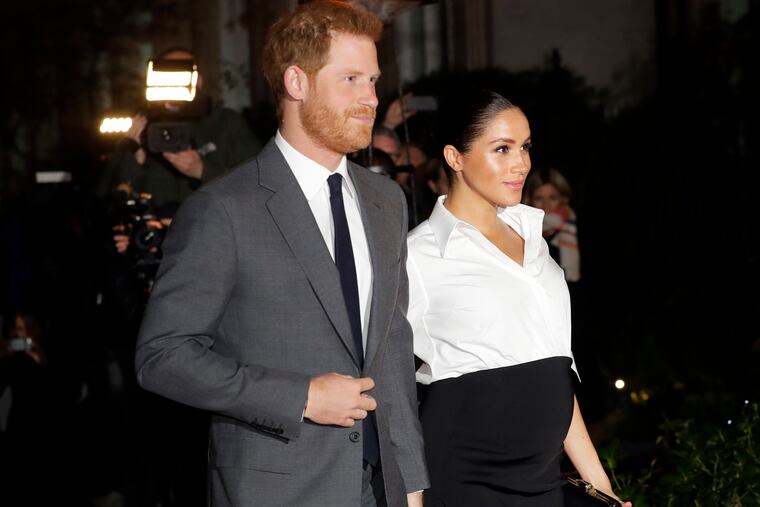It’s a boy! Royal baby’s arrival highlights debate over risk of home births
Meghan Markle reportedly wanted a natural birth, without the interventions that hospital births typically involve.

Congrats to Meghan Markle and Prince Harry on the birth of their first child, a son.
Harry told reporters on Monday that the early morning birth went well. He said he feels “over the moon” and is “so incredibly proud of my wife,” and that the couple will soon announce the name of their 7-pound, 3-ounce bairn.
What Harry didn’t say was whether the Duchess of Sussex gave birth in a hospital or at their home, Frogmore Cottage. Some media outlets speculated that it was a home birth because the Royal Family’s announcement mentioned the couple’s home.
Rumors have swirled about Markle’s intended birth location, partly because of the ongoing debate over the risks of home births. That debate goes hand-in-hand with the growing trend of women having babies at an “advanced maternal age,” meaning over age 35. At 37, Markle is past that threshold.
In the United States, fewer than 1 percent of births occur at home, about 30,000 a year, according to federal data. However, home births have been inching up since 2004, and a handful of states —including Pennsylvania, Montana, and Idaho — have higher-than-average rates.
The American College of Obstetricians and Gynecologists (ACOG) says women choosing home birth should be informed that while it involves minimal medical intervention, it has a twofold increased risk of newborn death. The infant is also more likely to suffer seizures or neurological problems than babies born in hospitals.
But one of the studies behind that alarming overview was criticized as flawed when it came out in 2013.
In England, as well as Canada and Denmark, the most recent studies have not found that home births result in worse outcomes than hospital births for low-risk women — those without complications such as high blood pressure, heart disease, or multiple gestation.
In November, Vanity Fair reported that Markle was considering an in-home birth, in a departure from tradition. Her sister-in-law Kate Middleton, for example, delivered at the Lindo Wing in St. Mary’s Hospital.
“Meg wants a natural birth if she can have one. Her mother is very into anything that is holistic and natural. ... It’s all very much of Meghan’s birth plan,” Vanity Fair quoted a source.
Whatever that plan entailed, as ACOG says, “Each woman has the right to make a medically informed decision about delivery.”